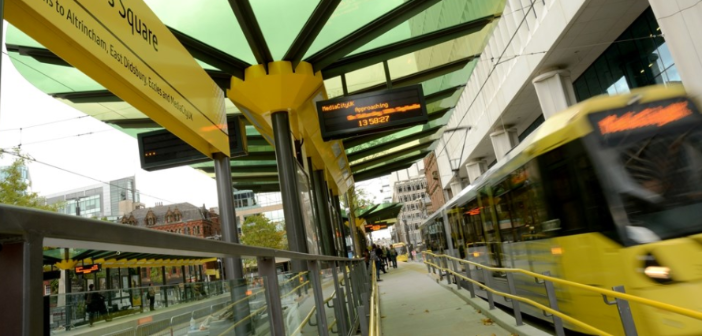Manchester’s Metrolink timetable will be increased this summer to meet growing leisure demand, with off-peak trams running every 12 minutes come July.
Transport for Greater Manchester (TfGM) has also announced that from Monday 05 July, a six-minute service will operate on the busiest lines at the busiest times with later running trams once again in place across the weekend.
This is in addition to the bolstered off-peak trams which enhances the current 20-minute off-peak frequency.
According to the operator, the changes are the next step towards returning a ‘normal’ pre-pandemic service and are being made in response to a rise in the number of leisure trips being made. It predicts passenger numbers will continue to increase throughout the summer following step four on the government’s road map and full return of hospitality.
TfGM added any changes will be closely monitored, and a flexible approach to the use of double trams will be maintained to ensure they run where they are needed most. All available trams will be put into service, including new ones as they are commissioned.
Head of Metrolink, Danny Vaughan, said: “While patronage is still someway off pre-pandemic levels, our traditionally busier lines are the ones where we are seeing the biggest increases and these changes not only mean we can cater for this demand now, they enable us to meet future growth.
“We will monitor our passengers’ travel patterns closely and continue to be flexible in our approach, ensuring our services and trams support people as they return to work, the shops, bars and restaurants and major events.”
A range of safety measures intended to keep people safe when using Metrolink will continue to remain in place, including hand sanitiser dispensers at the busiest stops, enhanced cleaning, flexible ticketing options, dedicated ‘trambassador staff’ and TravelSafe Partnership ‘days of action’ – to promote safe travel and engage with passengers about coronavirus rules and guidance.
Read more: Normal service resumes on Edinburgh’s trams amid growing demand





